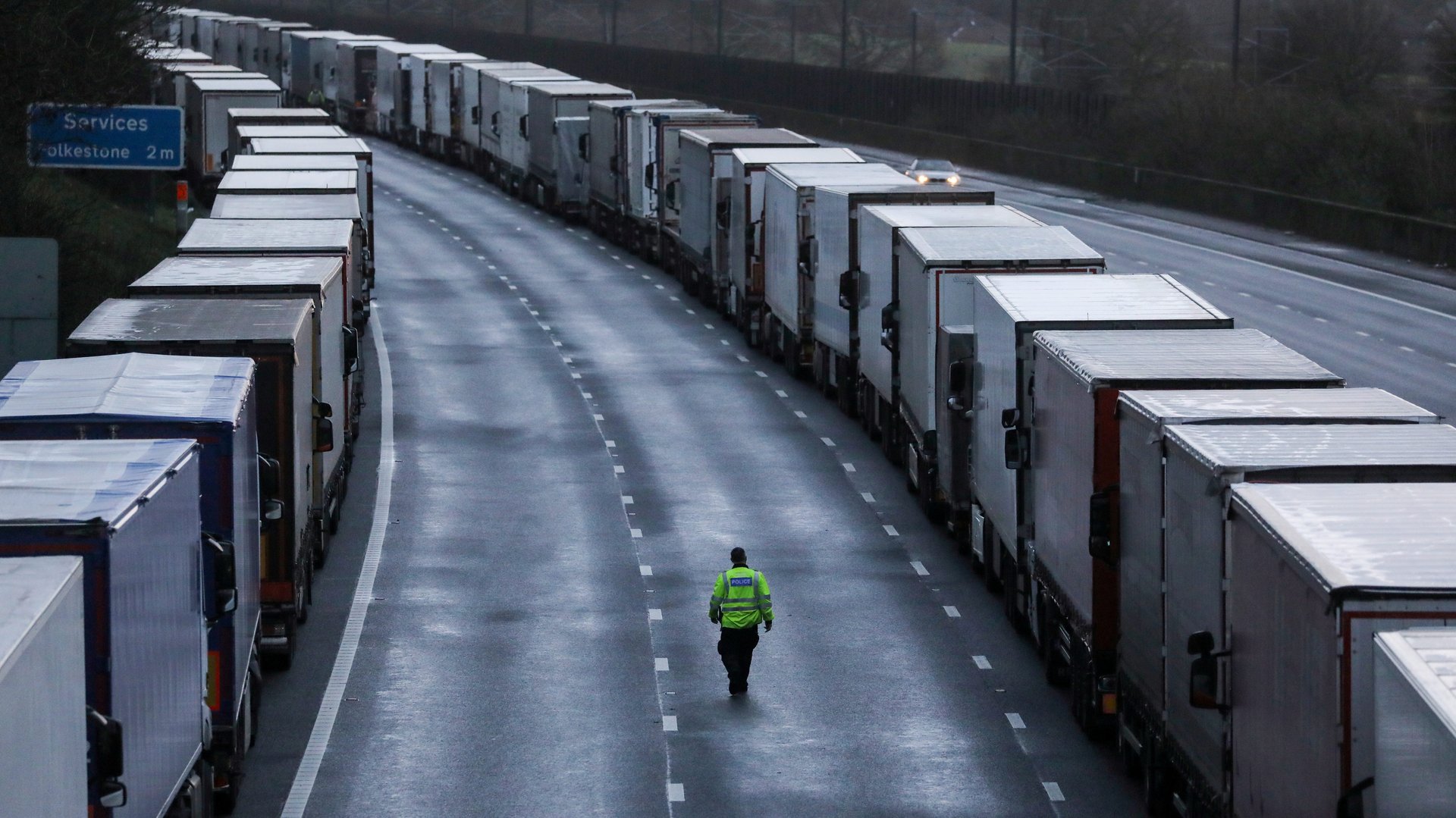Travel bans can’t contain the new Covid-19 strain
After the UK reported the discovery of a new strain of Covid-19 on Dec. 18, the European Union swiftly implemented a ban on UK travelers. As of Dec. 22, at least 40 countries, including Canada, India, and Turkey (but not the US) have followed suit, with the state of California mulling it over. South Africa, where the variant has also been detected, has also been targeted by new travel restrictions.


After the UK reported the discovery of a new strain of Covid-19 on Dec. 18, the European Union swiftly implemented a ban on UK travelers. As of Dec. 22, at least 40 countries, including Canada, India, and Turkey (but not the US) have followed suit, with the state of California mulling it over. South Africa, where the variant has also been detected, has also been targeted by new travel restrictions.
But such bans are unlikely to make a meaningful dent in transmission of the new strain.
The bans recall the early days of the pandemic, when the US and many other countries implemented travel bans on China and other regions where the coronavirus first appeared. Back then, a consensus quickly formed among epidemiologists that such bans could modestly slow the spread of the virus, but couldn’t be considered a substitute for masking, distancing, testing, and other measures.
A December study in the Lancet of actual Covid-19 transmission data supported this conclusion. It found that in May, in a majority of countries, cases imported from abroad accounted for at least 10% of total cases, suggesting that bans could have some impact. But over time, it reported, the share of imported cases dropped, especially in countries like the US with high rates of community transmission. “Stringent travel restrictions might have little impact on epidemic dynamics except in countries with low Covid-19 incidence and large numbers of arrivals from other countries,” the researchers wrote, “or where epidemics are close to tipping points for exponential growth.”
Amesh Adalja, a senior scholar at the Johns Hopkins Center for Health Security, told Quartz the early travel bans seemed like a convenient tool to politicians, but ended up perpetuating a false sense of security and weren’t worth the pandemonium they caused. The same is likely true of bans targeting the new variant, he said.
“The same pattern is being repeated and is likely to be just as ineffective,” he said. “I don’t think there’s any benefit to these travel bans and the damage they cause will be significant.”
The bans have already snarled freight traffic bound for France, and caused chaos at rail stations and airports as crowds of UK residents rushed to escape ahead of the bans—which, Adalja noted, was a predictable response that only increased transmission risk.
In any case, the new variant has almost certainly spread to other countries, he said; in addition to the UK and South Africa, it has also been detected in Australia and several European countries. The UK detected it because researchers there were actively monitoring for new strains, but since a standard swab test can’t distinguish between strains, other countries would need to dedicate resources to more widespread lab sequencing in order to tell how far the new version has spread.
In the meantime, all the same old rules on masking and social distancing still apply.
Although there is some evidence that the new Covid-19 variant can spread more easily than its predecessor, there’s no evidence that it is more dangerous. And because all the vaccines being rolled out induce a broad immune response, they’re likely to work against the new strain, Adalja said, although that needs to be confirmed. Although vaccine “escape” is possible when viruses mutate, he said, that usually happens after a large segment of the population in immunized, and the virus evolves a workaround. In this case, the mutations are small enough that, even if a decrease in vaccine effectiveness is documented, it’s likely that the existing one could be updated, he said, rather than a new one designed from scratch.